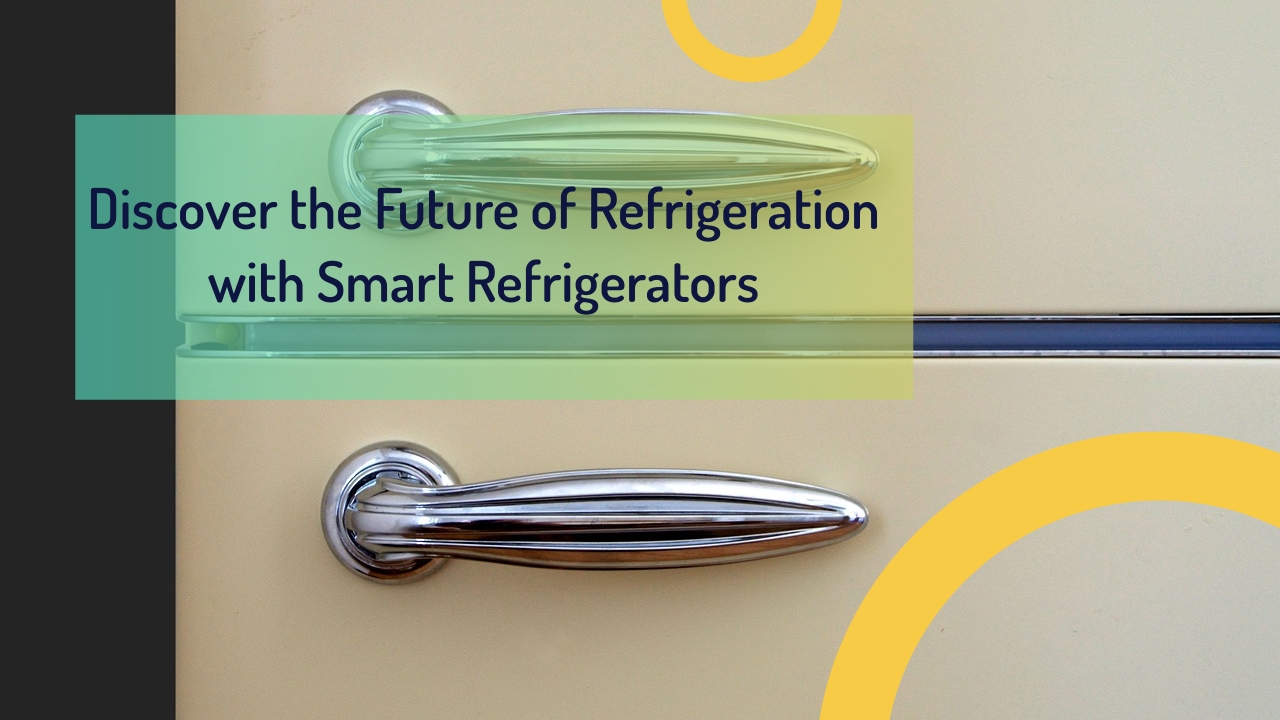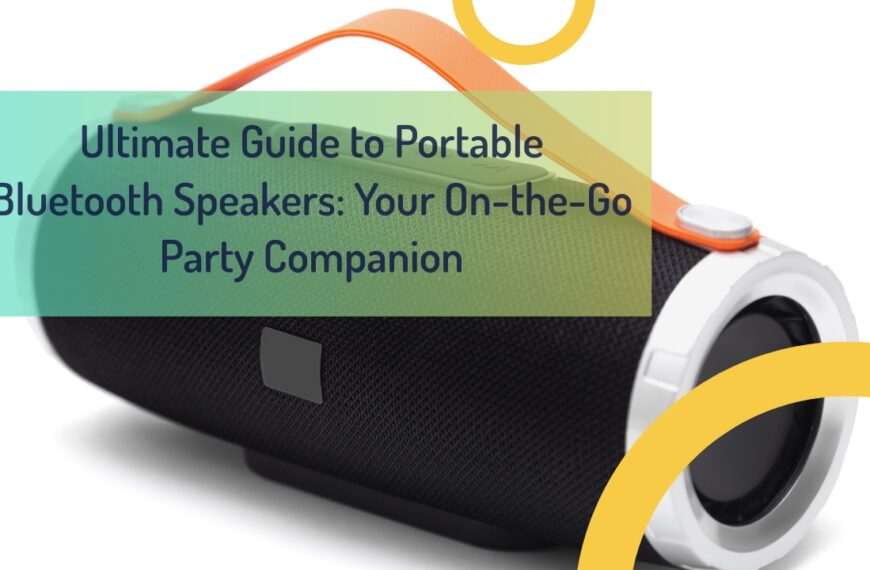In an age where technology seamlessly integrates into our daily lives, the smart refrigerator represents the next frontier in kitchen appliances. These innovative devices not only keep your food fresh but also offer a suite of smart features that enhance food storage, meal planning, and energy efficiency. This article delves into the world of smart refrigerators, exploring their functionalities and how they can transform your kitchen experience. If you’re considering upgrading your fridge or simply curious about the latest advancements in refrigeration technology, this guide is worth your time.

Table of Contents
- What is a Smart Refrigerator?
- How Does a Smart Fridge Work?
- What Are the Key Features of Smart Refrigerators?
- Smart Refrigerator vs. Traditional Refrigerator: What’s the Difference?
- How Do Smart Refrigerators Optimize Temperature and Humidity?
- The Role of Connectivity in Smart Refrigerators
- Energy Efficiency: How Smart Refrigerators Help Save Energy
- Smart Home Integration: Making Your Kitchen Smarter
- Meal Planning and Food Management with Smart Refrigerators
- Conclusion: Is a Smart Refrigerator Right for You?
What is a Smart Refrigerator?
A smart refrigerator is an advanced appliance that integrates technology to enhance the functionality and efficiency of food storage. Unlike traditional refrigerators, smart fridges are equipped with IoT-enabled features that allow them to connect to the internet and communicate with other smart devices in your home.
These refrigerators often come with built-in cameras, touch screens, and smart sensors that monitor temperature and humidity levels. The primary goal of a smart fridge is to keep your food fresh while providing features that make meal planning, grocery shopping, and food management easier.
How Does a Smart Fridge Work?
Smart refrigerators operate similarly to traditional models but include additional technology to optimize their performance. They typically feature advanced cooling mechanisms that maintain consistent temperatures inside the fridge and freezer compartments.
With connectivity capabilities, smart fridges can communicate with your smartphone or other smart devices, allowing you to control their settings remotely. This connectivity enables features such as receiving notifications if the door is left open or if temperatures fluctuate unexpectedly.
Some models also allow integration with voice assistants like Alexa or Google Assistant, enabling hands-free control over temperature settings, inventory management, and even grocery ordering.
What Are the Key Features of Smart Refrigerators?
Smart refrigerators come equipped with a variety of advanced features that set them apart from traditional models. Some of the most notable features include:
- Built-in Cameras: Many smart fridges have cameras that allow you to see the contents without opening the door, helping you keep track of what you have and reducing food waste.
- Smart Home Integration: These appliances can connect with other smart home devices, enabling seamless communication and control through centralized platforms.
- Temperature Optimization: Smart refrigerators can automatically adjust temperature and humidity levels based on the food stored inside, ensuring optimal freshness.
- Meal Planning Tools: Some models offer meal planning applications that suggest recipes based on available ingredients, making it easier to plan meals and reduce food waste.
- Voice Control: By integrating with virtual assistants like Alexa or Google Assistant, users can control their refrigerator settings using voice commands.
Smart Refrigerator vs. Traditional Refrigerator: What’s the Difference?
The primary difference between a smart refrigerator and a traditional refrigerator lies in the incorporation of technology and connectivity features. While both serve the same fundamental purpose of keeping food cold, smart fridges offer enhanced functionalities that cater to modern lifestyles.
- Connectivity: Smart refrigerators connect to Wi-Fi, allowing them to communicate with smartphones and other devices for remote monitoring and control.
- Smart Features: Unlike traditional refrigerators, smart models include features like built-in cameras for inventory management, temperature optimization for better freshness, and integration with smart home systems.
- Energy Efficiency: Smart fridges often come equipped with energy-efficient components that can help reduce energy consumption compared to older traditional models.
Overall, opting for a smart refrigerator means investing in an appliance that not only preserves food but also enhances convenience and efficiency within your kitchen.
How Do Smart Refrigerators Optimize Temperature and Humidity?
Temperature optimization is crucial for maintaining food freshness and safety. Smart refrigerators use advanced sensors to monitor both temperature and humidity levels within the fridge compartments.
These sensors continuously assess the conditions inside the refrigerator and make real-time adjustments as needed. For instance, if the humidity levels rise due to moisture from fresh produce, the smart fridge can activate a dehumidifying feature to keep conditions ideal for food preservation.
Additionally, some smart fridges are designed to alter compressor speed in response to cooling demands, ensuring that temperatures remain stable even when the door is opened frequently or when new groceries are added.
The Role of Connectivity in Smart Refrigerators
Connectivity plays a vital role in the functionality of smart refrigerators. By connecting to Wi-Fi, these appliances can communicate with various smart home devices and applications, enabling users to manage their kitchen more effectively.
For example, you can receive notifications directly from your fridge when certain items are running low or nearing their expiration dates. Some models even allow you to access shopping lists based on the contents of your refrigerator directly from your smartphone.
Moreover, integrated connectivity means you can control your fridge remotely—adjusting temperatures or checking inventory—whether you’re at home or away, adding a layer of convenience that traditional refrigerators simply cannot provide.
Energy Efficiency: How Smart Refrigerators Help Save Energy
Energy efficiency is one of the most significant advantages of modern smart refrigerators. These appliances are designed with technology that minimizes energy consumption while maximizing performance.
- LED Lighting: Many smart fridges are equipped with energy-efficient LED lighting, which consumes less electricity than traditional bulbs while providing better illumination.
- Adaptive Cooling: Smart refrigerators can adjust their cooling cycles based on usage patterns and external temperatures, ensuring they are not overworking themselves unnecessarily.
- Energy Monitoring Features: Some models come with built-in monitoring systems that track energy usage, allowing users to identify peak consumption times and make adjustments to save on electricity bills.
By integrating these energy-efficient features, smart refrigerators contribute not only to lower utility costs but also to a reduced environmental impact.
Smart Home Integration: Making Your Kitchen Smarter
The integration of smart refrigerators into a broader smart home ecosystem enhances overall kitchen functionality. These appliances can communicate with other smart devices—such as ovens, microwaves, and even coffee makers—creating a seamless cooking experience.
For instance, you might receive alerts on your smartphone when your fridge detects that certain items are running low, prompting you to order groceries from your preferred online service. Additionally, meal planning applications can suggest recipes based on what you have stored in your fridge, streamlining your cooking process.
By connecting these appliances together, homeowners can enjoy greater convenience and efficiency throughout their cooking and meal preparation routines.
Meal Planning and Food Management with Smart Refrigerators
Smart refrigerators offer advanced tools for meal planning and food management that help reduce food waste and promote healthier eating habits. Features like built-in inventory management systems allow users to track what they have on hand easily.
- Recipe Suggestions: Based on available ingredients detected by built-in cameras or user input, smart fridges can recommend recipes tailored to what you already have at home.
- Grocery Lists: Many smart refrigerators allow you to create shopping lists directly from the appliance or via associated smartphone apps based on inventory levels and expiration dates.
- Expiration Notifications: Users receive timely notifications when items are nearing their expiration dates, encouraging them to use ingredients before they spoil.
These features collectively enhance your kitchen experience by promoting organization and reducing unnecessary food waste.
Conclusion: Is a Smart Refrigerator Right for You?
Investing in a smart refrigerator comes with numerous benefits that can significantly enhance your kitchen experience. With advanced features like temperature optimization, meal planning tools, connectivity options, and energy efficiency, these appliances cater to modern lifestyles focused on convenience and sustainability.
Before deciding whether a smart fridge is right for you, consider your cooking habits, how much time you spend in the kitchen, and your interest in utilizing technology for meal management. If you value convenience and want to reduce food waste while keeping your kitchen organized, a smart refrigerator may be the perfect addition to your home.
Key Takeaways
- Smart Technology: Smart refrigerators integrate IoT technology for enhanced functionality.
- Temperature Control: They optimize temperature and humidity levels automatically for freshness.
- Energy Efficiency: Modern models help reduce energy consumption.
- Meal Planning Tools: Built-in features assist with grocery management and recipe suggestions.
- Smart Home Integration: They connect seamlessly with other smart devices for improved kitchen automation.
With this understanding of smart refrigerators, you’re now equipped to make an informed decision about upgrading your kitchen appliance!



